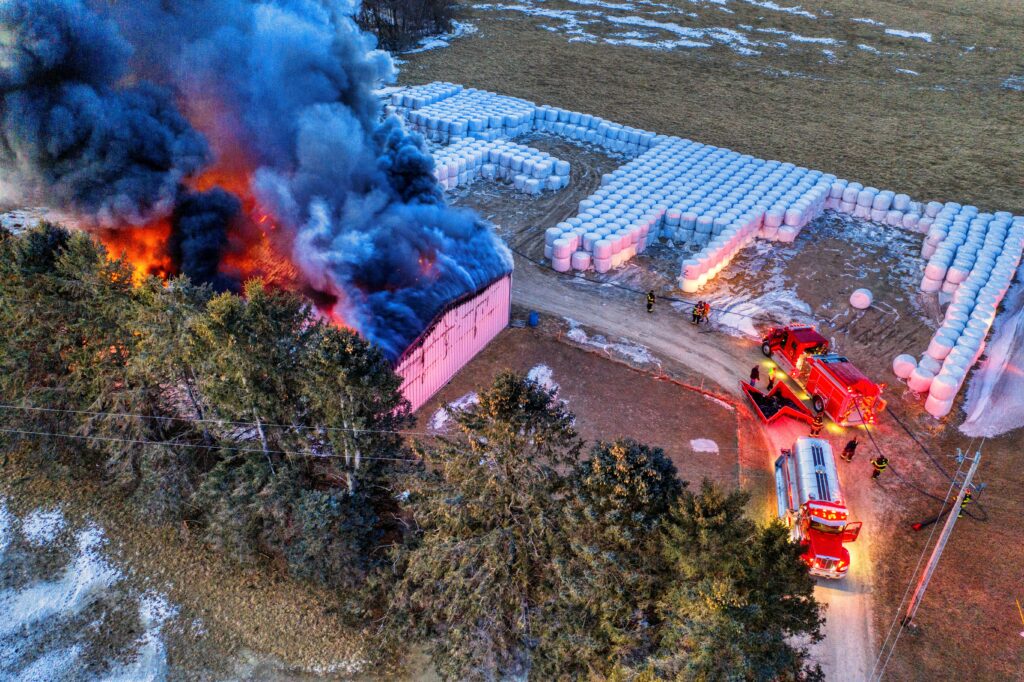The basic definition of the term “accident” entails that it is something unexpected. Over the years, modern technology, safety improvements, and sophisticated techniques for enhanced protection in commercial units have reduced the number of accidents, but still, every year, there are hundreds of incidents where employees suffer injuries and the business is left with extensive damages to bear. These cases can have a wide variety of reasons behind them.
According to stats from the Ministry of Manpower in the US, 80% of all work-related accidents were reported from the transportation and storage, construction, or manufacturing industries. The common causes involved both non-compliance to safety standards and unsafe practices by workers themselves. Either way, these accidents cost businesses and the national economy billions of dollars each year, which is especially troubling knowing that some simple steps can help mitigate the risks of accidents.
Here are some tips that can help businesses avoid some common incidents:
-
Upgrade storage solutions
Since transportation and storage are amongst the most high-risk sectors for industrial accidents, it is imperative for businesses in this field to take precautions. Statistics show that inadequate mediums for storing hazardous chemicals and unsafe handling of these can result in a wide range of accidents. This is why upgrading the chemical storage solutions of your facility is important. Thanks to modern tools, techniques, and processes, viable products exist today that are extensively tested to withstand heavy damage and provide durability that can be trusted. Using high-quality products for storing dangerous chemicals eliminates a common determinant in many industrial accidents.
-
Effectively communicate health and safety instructions
Employee errors resulting from either their own unsafe practices or lapse on the part of the business in not communicating safety protocols are another major cause of industrial accidents. As a responsible manager, you must ensure that all relevant precautionary measures are taken, starting with proper communication. Most construction and transportation businesses have daily safety briefings to ensure employees understand the course of action to take in emergencies. This needs to be common practice, and each session should be delivered in clear, appropriate language and tone so that everyone understands their duties when it comes to safety.

-
Make sure to mark exits and pathways in a clear manner
Another safety hazard at large industrial complexes and construction sites can be unclear demarcations between vehicular and pedestrian pathways. It is crucial for buildings to have a clear route planned out for circulation so that the probability of accidents can be mitigated. It is also important to consider speed restrictions, the movement of pedestrians throughout the compound, blind spots around and within buildings, trucks that are being used for loading and unloading as well as forklift trucks or other machinery that may be on the grounds. Factoring all these elements into the safety equation can help you avoid accidents substantially.
-
Make cleanliness at the site a top priority
In a safe and secure working environment, there is no place for untidy hallways, loose cables, or abandoned packages since these things are a disaster waiting to happen. To prevent accidents, the workplace must be kept neat and orderly. Depending on the type of industrial unit, the slightest untidiness or negligently placed items can lead to massive accidents, including fires, short circuits, and flooding. Not only do these accidents cause fatalities and injuries, but they also result in monumental financial losses for the business. Instructing the personnel on sight to clean up after themselves or hiring professional cleaning staff is another way to avoid any major or even minor accidents.
-
Train and motivate employees to follow safety protocols
No matter how many safety protocols are in place at your industrial complex, the slightest employee error can trigger chaos anyway. It is like the saying; any chain is only as strong as its weakest link. Don’t let your staff be the weak link in your safety chain. Although it may be an additional investment, ensure that you conduct safety training and drills for all employees regularly. Provide incentives that make employees inclined to follow safety protocols in case their health and well-being are not motivational enough. You will find that these investments are profitable because, without them, the smallest accident can cost you considerably more.
-
Use data and technologies to your advantage
Preventing mishaps and tragedies depends heavily on information, data, and insight. It can be helpful to identify possible hazards and dangers before anything goes wrong by thoroughly evaluating a company’s working conditions, methods, and operational procedures. Additionally, risk analysis enables businesses to implement timely and effective solutions. Once again, you can do this on your own or hire a professional data analytics firm to do the work for you. Either way, using this sophisticated technology can mitigate and sometimes even eliminate potential risks for you.
-
Assign specialist tasks to the most trained teams
Industrial accidents are sometimes inevitable, especially when performing specialized activities that call for particular approaches or methodologies. Such circumstances should be handled on the basis of individual cases. Building a team based on people’s talents and qualifications is significantly more intelligent than trusting instinct or gut feelings. Today there is an abundance of sophisticated software available in the market that enables team leaders to connect particular members to the knowledge and experience necessary to complete the task. The likelihood of an accident in a project is considerably decreased by assembling the ideal crew.
-
Always have a backup plan
Even specialists who are essential to a company’s efforts to prevent industrial mishaps occasionally call in sick or show their unavailability to work on some days. Without a backup plan, this day can mean that your operations run without a specialist to deal with safety breaches or any other incidents. Therefore, finding acceptable substitutes is crucial to upholding safety standards. You can even look for multiple replacements for the same person to fill in when the other person is unavailable and when the other has too much load on their roster.
Conclusion
Avoiding industrial accidents is a collective responsibility of all company members. If even one of these two stakeholders doesn’t fulfill their duties, the ship is at risk of sinking. The problem is that when it does go down, there are injuries, fatalities, monetary damages, and irreparable emotional ones as well. The simplest way to avoid all this is to follow a particular set of guidelines and protocols for ensuring industrial safety at all times.






